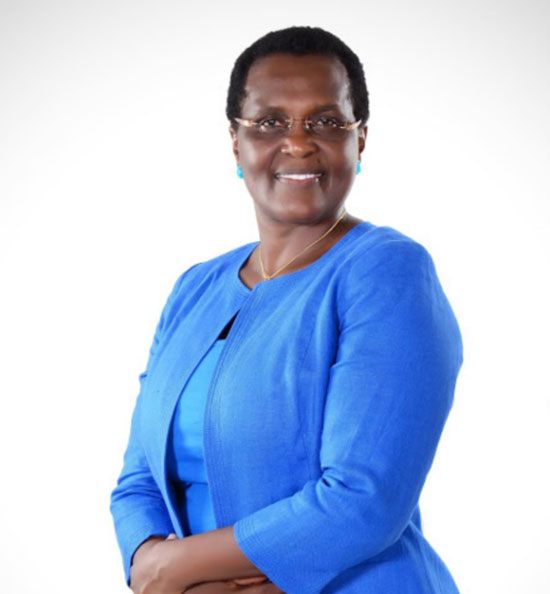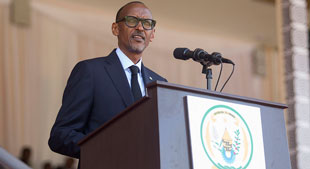
Nancy Karigithu is one of seven contenders pitching for the top job at the International Maritime Organization. If successful in the July elections, Karigithu would be the first African and first female elected in IMO’s 75-year history.
SPECIAL FEATURE | BIRD AGENCY | Nancy Karigithu, a globally recognised maritime expert with 38 years of experience, began her journey playing with paper boats on puddles in Mwea, a rice-growing region in Kenya.
“My dad’s teaching fellow, Edna Oxtoby, introduced me to paper boats that I loved floating on the water puddles. Along with the paper boats came the gift of a cowrie shell and a poem about how the shell carried “the murmurs of the sea”, as well tales of a sea that “goes for lunch” and comes back in the evening-I now know that this referred to the rise and ebb of the ocean tides.
These tales created a strong fascination with the sea, making me select a girl’s boarding school in the Coast region for my A-Levels. Seeing the ocean for the first time in my life, I fell in love with the endless expanse of water, which set the pace for my life and career,” she said.
Kenyan President William Ruto, together with the African Union, has endorsed her as the only African candidate for the post of secretary-general of the International Maritime Organisation (IMO), a specialised UN Agency that regulates shipping.
“In nominating her, we appreciate that no African and no woman has ever held the position of Secretary General of IMO in the years of the organisation’s existence. Her election, therefore, will be an affirmative action and will eland credits to the current global momentum of inclusivity and diversity in international decision-making processes,” said President Ruto.
Karigithu is running against Moin Uddin Ahmed (Bangladesh), Suat Hayri Aka (Turkey), Arsenio Antonio Dominguez Velasco (Panama), Cleopatra Doumbia-Henry (Dominica), Minna Kivimäki (Finland) and Zhang Xiaojie (China). The International Maritime Organization comprises 175 member states and three associate members.
A former Principal Secretary in the State Department for Shipping and Maritime in the Ministry of Transport, Karigithu is currently an advisor on Blue Economy in the president’s office and a special envoy for Maritime and the Blue Economy.
Karigithu, a wife and mother of four, shares that her family has always supported her throughout her career.
“My husband Charles did a most unusual thing for me at a time when it was unheard of – at the time I was offered a scholarship to specialise in international maritime law at the International Maritime Law Institute based in Malta, we were raising three sons aged between five years and seventeen months. Yet he released me wholeheartedly. He just rolled up his sleeves and became the best single parent he could be,” said Karigithu.
Karigithu worked in various organisations after returning home, and in 2004, she applied for a job at the Kenya Maritime Authority (KMA). And although she was offered the job, she almost didn’t accept it.
“I had enjoyed a varied and exciting career before; Attorney General’s office for three years, Kenya Ports Authority for six years – and 11 years as a legal practitioner and as IMO, African Union consultant. So after applying for and getting the KMA job, I was shocked and discouraged at the salary offered.
I contemplated very seriously saying no. Here I was with our sons, due to join university, and staring at a massive salary cut. But I consulted with my husband, and to my surprise, Charles encouraged me to take the job. ‘There are some things in life that money cannot buy’, he said.”
She took the job, and according to her, “it turned out to be the best career advice I ever got”.
However, beginning at KMA was challenging, and her first obstacle was the reception she received from her colleagues upon joining.
“Some said that I had no sea time experience, and that I had never served on board ships – someone even told me that I was not qualified to hold a job as a spanner boy on board a ship,” she said.
She worked at KMA for nine years, serving as the first Director General of the organisation, a position she held for nine years.
In this position, she led the review and enactment of the comprehensive legal frameworks for maritime activities in Kenya. And later set up the first-ever State Department for Maritime and Shipping Affairs, serving as the Principal Secretary and championing the country’s maritime agenda for national social and economic growth.
Within the region, Karigithu has spearheaded the Government of Kenya’s efforts and contribution to the suppression and prevention of acts of piracy and armed robbery against ships within the Western Indian Ocean Region. She also played a key role in ensuring that IMO issued a formal notification to member states on the removal of the Indian Ocean from the list of high-risk areas.
She recently championed a global initiative for the protection of wildlife that resulted in adopting the Guidelines for the Prevention & Suppression of the Smuggling of Wildlife on Ships engaged in International Maritime Traffic, which the IMO endorsed in May 2022.
Karigithu has also played a pivotal role in forming the Association of Women in the Maritime Sector in Eastern and Southern Africa – WOMESA.
“The fact that women still make only about 1.2% compared to their male counterparts clearly highlights the glaring need for diversity, equality, equity and inclusion in the industry. That is why when the idea of bringing together women in the eastern and southern Africa region came up, I embraced it as it gave a platform for the countries in the COMESA Region to join together to ensure progress in the maritime sector with a key focus on gender equity,” she said.
The Association’s primary objective is to encourage IMO member states to open the doors of their maritime institutes to enable women to train alongside men. This is done through advocating for gender equity, improving women’s access to maritime training and technology and promoting their advancement to crucial decision-making levels in the marine sector in Eastern and Southern Africa.
“For centuries and even now, women still encounter prejudice in the maritime industry, the most common of which being the idea that shipping is a men’s world—and, thus, it might be tough for a woman to achieve the same level of success as a man.
Women seafarers work mainly in the cruise and ferries sector, which are among the lowest-paid and least protected jobs at sea. Women also tend to be younger, with fewer officers than their male crewmates. Their low number means that women can be subject to discrimination and harassment. Equally important is the fact that most women fear to pursue such a career as they believe they might have to deal with sexual harassment or even abuse while at sea, as well as a low level of support from co-workers,” explained Karigithu.
According to her, the ship’s culture reflects masculine norms and values, which manifests in the uniform size, space design, and the facilities on board.
She believes action is needed to improve support for females, which may include re-evaluating the living conditions to make them more gender-sensitive.
“Female role models must also rise up so as to help young women develop the right self-perception for different career paths. We must also take important steps to include the integration of women in the maritime sector at the design and planning of national policies, programmes and projects, as well as in the financing, implementation, and monitoring and evaluation,” she said.
If elected as the next secretary general of IMO, Karigithu has big plans to bring “new thinking” to the organisation.
“Global organisations such as IMO need to think outside the box – with new impetus and thinking that is not “polluted” with the business-as-usual norm, in order to ensure that the Organization remains relevant and effective in the 21st century. A future-ready 75-year-old IMO, therefore, needs a new, firm, unbiased, neutral pair of steady hands to navigate the changing and uncertain global maritime terrain. For this reason, amongst others, I am contesting to be Secretary-General of IMO to bring new thinking to the organisation.
If elected, I plan to run an open administration by working more closely with Permanent and Alternate Permanent Representatives of Member States, regardless if they are based in London or working from their home offices, the diplomatic missions, the industry and its essential associations to fashion out a new approach and ease of doing business with IMO through transparency, collaboration and inclusion.
I will also adopt more open and participatory approaches to consultations and decision-making and strengthen the engagement and representation of civil society, industry, and other non-state actors.
Under my watch, the IMO would work to strengthen partnerships and collaboration with other international organisations, governments, industry, and civil society to achieve its objectives,” she said.
Karigithu is also passionate about increasing awareness among African youth about opportunities at sea, particularly on cruise ships, and encourages them to apply for these positions.
“The crew of a cruise ship comprises various skill sets and disciplines ranging from marine engineering and deck crew through to entertainment, onboard security, hotel management, food & beverage services, pool attendants, welders, fitters, plumbers, butchers, lifeguards, culinary, housekeeping, acrobats, childminders, guest activities, guest services, human resources, medical, casino operations, shopkeepers, kitchen utilities, refurbishment and facilities.
It also includes hairdressers, nail technicians, masseurs, keep-fit trainees, environmental personnel, and garbage collectors. For our hard-working youth in Africa, whatever skill they have can be used to get a well-paying job at sea,” she concluded.
On May 19, a team of Kenyan government officials and African Union representatives launched Karigithu’s candidature at IMO headquarters in London.
40 members of the IMO Council will pick the successor to Kitack Lim of Korea, whose tenure ends in July this year.
*****
SOURCE: Thuku Kariuki, bird story agency
 The Independent Uganda: You get the Truth we Pay the Price
The Independent Uganda: You get the Truth we Pay the Price


